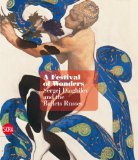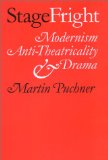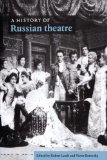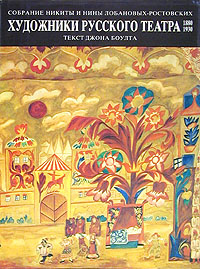Theatre
English
  Festival of Wonders: Sergei Diaghilev and the Ballets Russes, by John E. Bowlt (Editor), Zelfira Tregulova (Editor). Skira, 2009. Hardcover, 320 pages. Festival of Wonders: Sergei Diaghilev and the Ballets Russes, by John E. Bowlt (Editor), Zelfira Tregulova (Editor). Skira, 2009. Hardcover, 320 pages.
In May 1909, Sergei Diaghilev astonished the world of dance with his first ballet presentations in Paris that demonstrated an unprecedented combination of vitality and grace, originality, and technical sophistication. This catalogue of over three hundred artworks related to the Saisons Russes between 1909 and 1929 is the official companion to an exhibition in Monte Carlo. The legendary productions are brought to life through stage designs, costumes, paintings, sculptures, photographs, and programs.
The artwork comes from a wide variety of public and private collections, including the Fokine collection in the St. Petersburg Theatre Museum. Diaghilev’s scenic achievements are complemented by a number of contextual paintings, drawings, and other artifacts, which help to define Russia’s cultural renaissance of the first decades of the twentieth century. The documentary section of the catalog contains rich archival material, including letters, photographs, choreographic notes, and memoirs, many published here for the first time. (Amazon editorial review)
  Stage Fright: Modernism, Anti-Theatricality, and Drama. By Martin Puchner. The Johns Hopkins University Press; illustrated edition, 2002. Hardcover, 248 pages . Stage Fright: Modernism, Anti-Theatricality, and Drama. By Martin Puchner. The Johns Hopkins University Press; illustrated edition, 2002. Hardcover, 248 pages .
"In this superb examination of theatricality and its detractors, Martin Puchner takes a close look at the theories of Stéphane Mallarmé, James Joyce, Gertrude Stein, William Butler Yeats, Bertolt Brecht, and Samuel Beckett... In order to circumvent theatricality, Puchner observes, these authors shared common strategies: the superimposition of stage directions, choral figures, narratives, and commentators on the action, and characters who observe their own actions -- all designed to disrupt mimesis, illusion, and theatrical virtuosity... [An] important study." ( David Krasner, Theatre Journal)
"After this study, a lot of polemic energy spent in debate between pro-theatricalists and anti-theatricalists, between adherents of modernism and those of the avant-garde, can be spared. The fault lines between solipsistic and elitist modernism on the one side, and a collaborative and political avant-garde on the other, must be drawn anew. As Puchner brilliantly demonstrates, the radical difference must be thought, first and foremost, along the parameters of anti-theatrical modernism versus the theatrical avant-garde... By doing justice to the minute details of... the dramas and theories of Mallarmé, Joyce, Stein, Yeats, Brecht and Beckett, Puchner makes a compelling case for the central thesis of the book. Moreover, Puchner... provides a new vocabulary to analyze modernism's 'hate affair' with the theater." (Klaus Mladek, Modernism/modernity)
  Revolutionary Theatre (Theatre Production Studies) by Robert Leach. Routledge; 1 edition, 1994. Hardcover, 256 pages . Revolutionary Theatre (Theatre Production Studies) by Robert Leach. Routledge; 1 edition, 1994. Hardcover, 256 pages .
"Intended for the neophyte to the study of the Russian stage, Revolutionary Theatre contains vividly detailed descriptions of pivotal productions from the time, as well as a highly useful critical apparatus. Leach's cogent analysis of the work of a variety of directors and theatre groups in both Moscow and Petrograd gives the newcomer to the field an understanding of the diversity of theatrical styles during the revolutionary period in Russia."
(Theatre Insight)
Revolutionary Theatre is the first full-length study of the dynamic theatre created in Russia in the aftermath of the Bolshevik Revolution. Fired by social and political as well as artistic zeal, a group of directors, playwrights, actors and organizers collected around the charismatic Vsevolod Meyerhold and attempted to achieve in the theatre what Lenin and his comrades had achieved in politics: the complete overthrow of the status quo and the installation of a new, utterly different regime. Until now the efforts and influence of this idealistic and radical group of theatrical avant-gardes has been largely unacknowledged as the oppressive reign of Stalin condemned many of them to death and their work to oblivion. In this enlightening work Robert Leach reveals in fascinating detail their roots, their achievements and their legacy. (editorial review at Amazon)
  A History of Russian Theatre by Robert Leach, Victor Borovsky. Cambridge University Press, 2000. Hardcover, 464 pages . A History of Russian Theatre by Robert Leach, Victor Borovsky. Cambridge University Press, 2000. Hardcover, 464 pages .
"A gift to be embraced by English-speaking historians. If this material is not already part of our general theatre history courses, it needs to be incorporated; and if we already give Russian/Soviet theatre the attention it desrves, then these books will revitalize and enhance our understanding."
(Theatre Survey)
"This collaboratively written work will be valued for its broadly based approach and its encyclopedic information...It has no competitor."
(Slavic and East European Journal)
Russian
  Джон Э. Боулт. Художники Русского театра 1880 - 1930. Собрание Никиты и Нины Лобановых-Ростовских, Издательство: Искусство, 1990 г. Суперобложка, 336 стр. (Artists of the Russian Theatre. Collection of Nikita & Nina Lobanov-Rostovsky. By John E.Bowlt. "Iskusstvo", 1990. Dust jacket, 336 pages) Джон Э. Боулт. Художники Русского театра 1880 - 1930. Собрание Никиты и Нины Лобановых-Ростовских, Издательство: Искусство, 1990 г. Суперобложка, 336 стр. (Artists of the Russian Theatre. Collection of Nikita & Nina Lobanov-Rostovsky. By John E.Bowlt. "Iskusstvo", 1990. Dust jacket, 336 pages)
The theatre and decor art is a most pronounced phenomenon in Russian culture of the first third of the XXth century, which has focused and affected the greatest artists of the time. Brilliant debuts of the Russian artists of the seasons, brought together by the Diagilev's vibrant genius, have enriched the world with their magnificence of form and color. (from editorial review at Ozon).
Buy from Ozon.ru.
|

